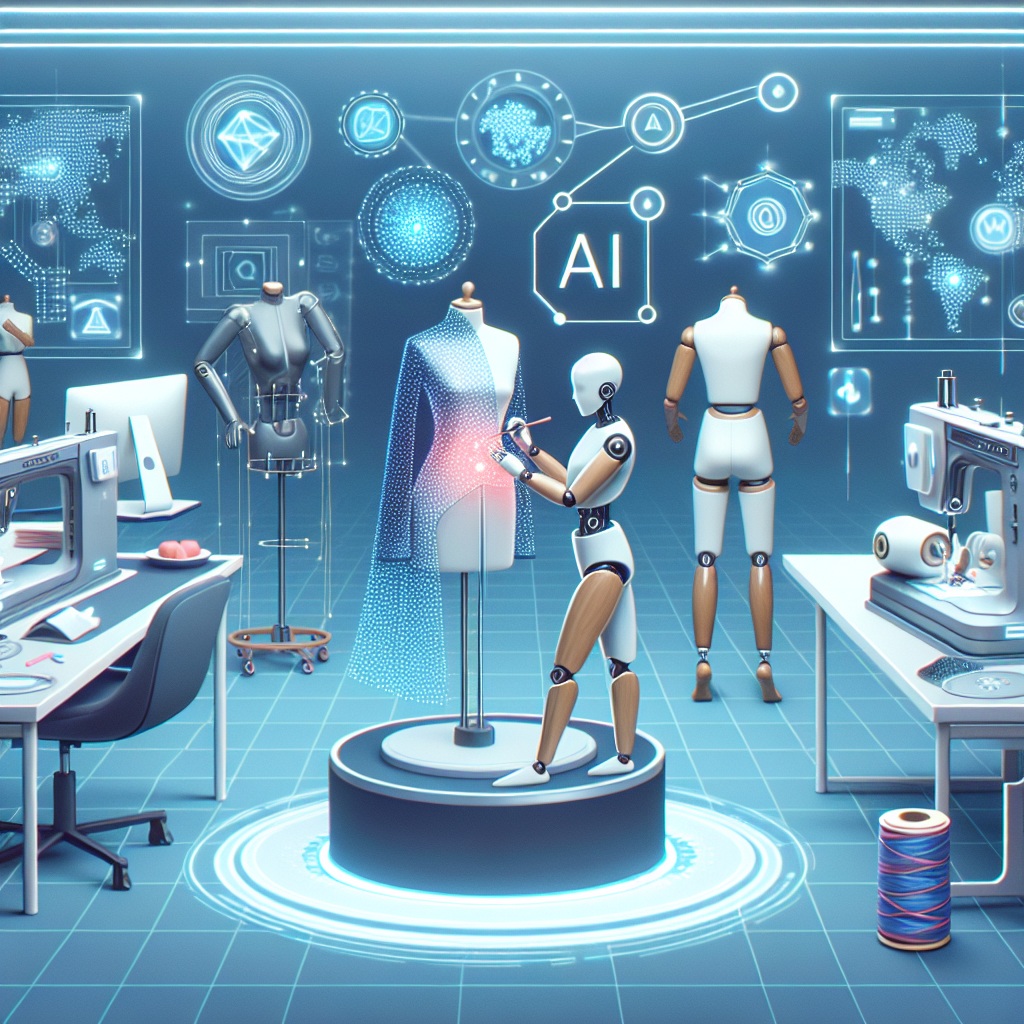Artificial intelligence has made significant advancements in various industries, and the fashion industry is no exception. AI fashion designers are revolutionizing the way clothes are designed and produced, offering a glimpse into the future of creativity in fashion.
AI fashion designers use algorithms and machine learning to analyze trends, predict consumer preferences, and create unique designs. By analyzing vast amounts of data, AI can identify patterns and trends that human designers may overlook, leading to innovative and cutting-edge designs.
One of the key benefits of AI in fashion design is its ability to speed up the design process. Traditional fashion designers often spend weeks or even months creating a single collection, but AI can generate designs in a fraction of the time. This allows fashion brands to produce more collections and stay ahead of the competition.
Another advantage of AI fashion designers is their ability to personalize designs for individual consumers. By analyzing data on a person’s style preferences, body measurements, and shopping habits, AI can create custom-made designs that cater to the unique needs of each customer. This level of personalization can help brands build stronger relationships with their customers and increase customer loyalty.
AI fashion designers also have the potential to reduce waste in the fashion industry. By optimizing production processes and predicting demand more accurately, AI can help brands produce only what is needed, reducing overstock and minimizing the environmental impact of the fashion industry.
While AI fashion designers offer many benefits, there are also challenges that need to be addressed. One of the main concerns is the potential loss of creativity and human touch in fashion design. Some critics argue that AI-generated designs lack the emotional connection and artistic flair that human designers bring to their work. However, proponents of AI in fashion design argue that technology can enhance human creativity rather than replace it.
Another challenge is the ethical implications of AI in fashion design. As AI becomes more integrated into the fashion industry, questions arise about data privacy, intellectual property rights, and the impact of automation on jobs in the fashion industry. These issues will need to be addressed as AI continues to transform the fashion design process.
Despite these challenges, the future of AI fashion designers looks promising. As technology continues to advance, AI will become more sophisticated in its ability to create innovative and personalized designs. Fashion brands that embrace AI in their design process will be able to stay ahead of the competition and meet the evolving needs of consumers in a rapidly changing industry.
FAQs:
1. How does AI fashion design work?
AI fashion design uses algorithms and machine learning to analyze data, predict trends, and create designs. By analyzing vast amounts of data, AI can identify patterns and trends that human designers may overlook, leading to innovative and cutting-edge designs.
2. Can AI fashion designers replace human designers?
While AI fashion designers offer many benefits, they are not likely to replace human designers entirely. Human designers bring a unique creativity and emotional connection to their work that AI cannot replicate. However, AI can enhance the design process and help designers create more innovative and personalized designs.
3. What are the benefits of AI in fashion design?
Some of the benefits of AI in fashion design include speeding up the design process, personalizing designs for individual consumers, reducing waste in production, and predicting trends more accurately. AI can help fashion brands stay ahead of the competition and meet the evolving needs of consumers in a rapidly changing industry.
4. What are the challenges of AI in fashion design?
Some of the challenges of AI in fashion design include the potential loss of creativity and human touch in design, ethical implications related to data privacy and automation, and concerns about job displacement in the fashion industry. These issues will need to be addressed as AI continues to transform the fashion design process.
5. What is the future of AI fashion designers?
The future of AI fashion designers looks promising, as technology continues to advance. AI will become more sophisticated in its ability to create innovative and personalized designs, helping fashion brands stay ahead of the competition and meet the evolving needs of consumers. While there are challenges to address, AI has the potential to revolutionize the fashion industry and redefine the future of creativity in fashion design.

